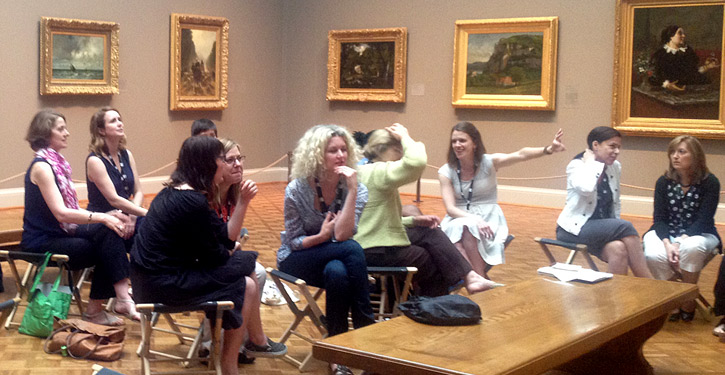Only a hundred years have passed since the appearance of the first decree on holidays in Russia. Until the October Revolution of 1917, such a concept did not exist at all in labor relations. The right to rest was far from immediately realized in the characteristics that exist today. More recently, the minimum guaranteed period of rest in the USSR was only six days, only since 1970, increasing to three weeks.
To date, there has been a fairly expanded labor law that governs the provision of different types of leave. They can be given not only for rest, but also for the birth of a child and care for him, by temporary disability. Depending on various factors, vacation time for holidays may vary for workers residing in different regions of the Russian Federation. What unites all types of vacation is that during this period the employee is not at his workplace and does not fulfill his duties, having documented his absence documented and at the same time exercising his rights enshrined in law.
Who is considered a teacher
Not all employees of educational institutions are teachers and have the corresponding labor rights. To determine who in a university, college or school can apply for one of the varieties of leave, legally approved in the Russian Federation for teachers, it is necessary to consider what positions in the institution belong to the category of teachers. These positions were approved in Government Decision No. 678 of 08/08 2013. In it you can find the corresponding list, valid from September 1, 2013. In the document in the general list of posts, the posts of pedagogical workers of universities and the posts of managers are separately allocated.
Varieties of Holidays
In the Labor Code of the Russian Federation there is a special article 114, which prescribes such a form of recreation as vacation. Everyone who works under the contract is given the opportunity to spend at their own discretion 2 weeks without attending work. At the same time, a person receives money and a guarantee that no one will take his place during this time. 6 months after employment, in accordance with labor legislation, each employee of the organization can get a vacation. Such a right also exists for those who work in organizations that implement educational programs.
For teachers, annual paid leave has its own specifics related to the time of its provision and duration. Labor activity in educational organizations is associated with interaction with children and adolescents, who not only need to be taught, but also let go on vacation, as well as with the implementation of functional educational, methodological and scientific nature. The possibility of obtaining an annual extended paid leave for teachers and creative leave is approved by law.
The appearance of varieties of vacations other than those of other categories of workers is associated with the peculiarities of their professional activities. So, creative leave is a type of extended paid leave for teachers, the right to which are employees noted in the resolution.As for the types of holidays that can be given to all citizens subject to certain conditions (leave without maintenance, maternity leave), they are provided to teachers without taking into account the specifics of work in educational organizations.
How many teachers work

Despite the fact that the work of teachers can hardly be considered easy, they envy them, since many people want to relax in the summer. The extended vacation of teachers may have a different length. An employee of an educational organization can be twice as long as a normative one, that is, 56 days. The duration of the annual leave of teachers depends on the position and the institution in which they work.

The director of the school or the rector of the university cannot determine the duration of leave for teachers: in the Decree No. 466 of the Government of the Russian Federation dated 05/14/2015 she was legalized for all posts. In this document, when specifying who and how much you can relax, the type of educational institution is also indicated. The administration and the entire staff of schools and universities receive a maximum extended paid vacation of 56 days.
The duration of the leave of teachers and managers in the system of vocational education, as well as all those who work with preschool children, is 42 days. For this category, leave can be extended for another two weeks if the functionality is associated with the education and upbringing of children with disabilities or the implementation of general developmental and pre-vocational programs in the field of art.
The difference in extended paid leave of up to 42 days is enshrined in law and for teaching staff of institutions involved in projects to identify children with outstanding abilities.
The procedure for paying annual leave
Going on vacation, teachers receive vacation pay. The amount of payment is determined by the accounting department. To calculate the amount due to the employee, you need to know how much he received in the last three months, how many days he worked for this period. When determining the average daily earnings, all additional payments are taken into account. For teachers, this may be an additional payment for the management of the subject-cycle commission or the conduct of state final certification. If during the specified period payments were made at the birth of a child, other financial assistance was provided to the employee or employee due to marriage, this will not be taken into account when calculating vacation pay.
Since the vacation is considered to be in calendar days, the weekends falling into this period are also paid. Payment of holidays non-working days coinciding with the vacation is not made. The amount of vacation pay will be equal to the average daily earnings of a teacher multiplied by the number of vacation days.

The right to leave every 10 years
If, for example, the teacher decides to write a dissertation, he can contact the employer with a statement on the provision of leave for a year, to which all teaching staff are entitled. Writing a dissertation is a good reason that gives the right 365 days not to go to work. If necessary, other pedagogical staff will also be granted long leave, in accordance with the conditions stipulated in art. 335 of the Labor Code of the Russian Federation, paragraph 4, part 5, article 47 Federal Law “On Education in the Russian Federation”.
Having a good reason is not the only condition that must be met. There should also be an annual unused vacation for the last ten years.
Workers of preschool institutions and preschool institutions can apply for a long vacation

The faculty of universities can easily find reasons not to go to work for a year: the department staff can take the main extended vacation for teaching staff, and then extend it for another year, for example, for writing a monograph or study guide. The teaching staff of educational institutions implementing programs of secondary vocational or additional education, or kindergarten workers, of course, are less motivated for some kind of professional activity outside their workplace, for which you need to take a vacation.
Even the personal circumstances of teachers (subject to all conditions prescribed by law) will be the basis for the provision of long leave. In the first section of the new nomenclature of posts approved by the Decree of the Government of the Russian Federation, all pedagogical workers who can ask employers to provide such leave every 10 years are named. So, both a speech therapist, a teacher, and even a senior counselor, if they have been working at these posts for 10 years in a row, can afford to take a break in this teaching activity for a year.
New rules for granting long leave
If the working experience of a teacher, for example, is 30 years old, while he has never taken a long vacation, he may still not receive it. Before writing an application for a vacation for a year, teachers need to open their work book and count how many years in a row they have been engaged in teaching activities. If the continuous teaching experience is less than ten years, it is premature to apply for this type of vacation.
The new rules for measuring teaching experience allow the employee to form it from the time actually worked out under the contract in different educational institutions. It is even allowed to work in private educational organizations if they have passed state accreditation. It is important to understand here that the periods of work in different educational institutions are summed up to provide long vacations of up to one year to teachers only if the break in work during the transition from one institution to another did not exceed three months.
The procedure for granting leave for a year
It is possible to apply for a long vacation of up to a year to pedagogical workers only if their individual hourly load is established by a local act for a certain period of time, usually for the academic half year or academic year. When a teacher is convinced that he has the right, the grounds, and the desire to go on creative leave, when drawing up all the necessary documents, he may encounter a number of unexpected obstacles. Firstly, the employer may be against such a vacation during the period for which the teacher designated him. There can be many reasons: problems with staff - there is no one to carry out the pedagogical load, other employees being on long leave, unfulfilled load for the previous period.
In order not to encounter such obstacles, you should plan any type of vacation in advance and notify management of your plans.
If earlier the issues of granting long leave to teachers were determined by the Charter of the educational institution and local acts that stipulated it, you can take it in parts or only in whole, what is the sequence and procedure for providing it, what is the procedure for combining it with other types of leave, how to extend it in case of illness, then now all these issues are prescribed in the collective agreement.

Payment for a long vacation
The law does not fix the obligation of the employer to pay the teacher when he is on long leave. If the collective agreement provides for the possibility of such payment, then the budget funds will not be the source of vacation financing.
If the educational organization provides additional educational services on the basis of full reimbursement of funds by students, then this extra-budgetary fund can be used to pay for additional vacations of teachers. As a rule, this applies to employees for whom the educational organization is the main place of work.The provision of such leave to part-timers is also carried out on the basis of the provisions of documents that are approved by the educational institution.
When the teacher is on vacation, what the employer can and cannot do
If the leave for teachers is arranged in accordance with all requirements, the employer, in case of production need, has the right to withdraw them from this leave. This is provided for by Art. 125 Labor Code of the Russian Federation. Regardless of whether the teacher is on annual paid leave or an additional long leave, the employer can return him to the workplace, if there is his consent, confirmed in writing.
There are a number of restrictions that apply in this situation and do not allow you to withdraw an employee from vacation, even if the employer is experiencing a serious staff shortage. We are talking about teaching staff, whose additional leave is associated with study. It is also impossible to recall from vacation those who are under the age of 18 (such pedagogical workers are rarely found in educational institutions) and pregnant women.
A teacher can start work only if he has written a corresponding application and the head has issued an order stating for what reasons and from what time his vacation is interrupted. The employer must provide the unused part of the leave, agreeing the terms with the employee. The terms for the provision of the remainder of leave for teachers are prescribed in the same order with which the employee should be familiarized with the signature. If the employer has the right to take the initiative to terminate the vacation if there are good reasons, then the employer cannot dismiss the employee during the vacation and transfer to another position under any circumstances.
Even in the case of a one-year vacation, the employer is required to retain the pedagogical load of his pedagogical load and his position. When leaving the vacation, the teacher cannot get fewer hours of study load if the curriculum remains unchanged and the number of students remains the same. The teaching load and position for the vacation period for teachers is guaranteed. If the employer has reduced the load on the employee or fired him during the vacation, the employee should contact the Labor Inspectorate or the prosecutor's office.
Will a long vacation enter the teaching experience
For many teachers, it will be a revelation that this type of vacation will not only be given without maintenance, but will not be taken into account in the early appointment of a pension. This is due to the fact that when providing information to the Pension Fund for each employee, the service code is not entered in the individual data of those who are on long leave. When deciding on the need for this type of vacation, you need to know that he will not be included in the teaching experience.
Scheduled Vacation: Transfer Option
Despite the fact that there is a tacit agreement on the provision of leave for teachers in the summer, it can be provided at other times of the year. At the same time, you need to know what pitfalls can be here to prevent what is prohibited by law.
For all vacation calculations, the employer will build on the employee’s time at the institution. If 6 months have already been worked out - the right to annual leave has appeared. Now you can decide how to use it, in full or in parts. In the latter case, it is important that one of the parts be at least 14 calendar days. To get their due 56 days, from the moment of employment the employee must work not for 6 months, but 12.
When there is a pedagogical process, the provision of leave to pedagogical workers even for 28 days is undesirable. Therefore, the practice of providing vacation in advance.This is understandable, since during the educational process it is sometimes impossible to find a replacement, and children must receive full knowledge
Vacation schedule
In all organizations, the provision of extended annual leave to teachers is regulated by a schedule approved before the start of the calendar year. The schedule is compiled in a unified form and approved by the head of the organization. The terms of leave of teachers, fixed in the schedule, are agreed and brought to the attention of all employees under signature. You can transfer the vacation to another time by writing a statement addressed to the head. The employer has the right to refuse the employee to transfer the vacation to another time if the schedule is already approved. The main part of the leave of 28 days is mandatory for all teachers. For the part of the vacation, which makes it extended to 56 or 42 days, the teacher can receive monetary compensation.
Extra leave for educators in the northern regions

The Labor Code (Art. 116, 321) takes into account the specifics of pedagogical activity in difficult weather conditions, which allows pedagogical workers who carry it out to claim annual extended paid leave in excess of the established length. The additional leave of teachers working in the Far North will be 24 days, and workers in the regions equated to them will be 16 days. Also, guarantees and compensations for pedagogical workers of the northern regions, where district coefficients and salary allowances are applied, continue to be preserved. They make up 7 days of extra vacation.
Working with children is no reason to get extended holidays

There are quite a lot of organizations operating in the territory of the Russian Federation whose workers are also related to children by their occupation - with their treatment, organization of leisure, activities with orphans and those children left without parental care. There is also a related field with education - a scientific field in which the nature of work is in many respects similar to activities in universities. Prior to the enactment of Resolution No. 466, employees of these organizations were entitled to extended leave. Currently, such a right is reserved only for employees of organizations that have licenses and implement any educational programs. Those who engage in social or scientific work are not entitled to extended periods of leave for teaching staff, since these employees are not included in the list approved by the Government.
